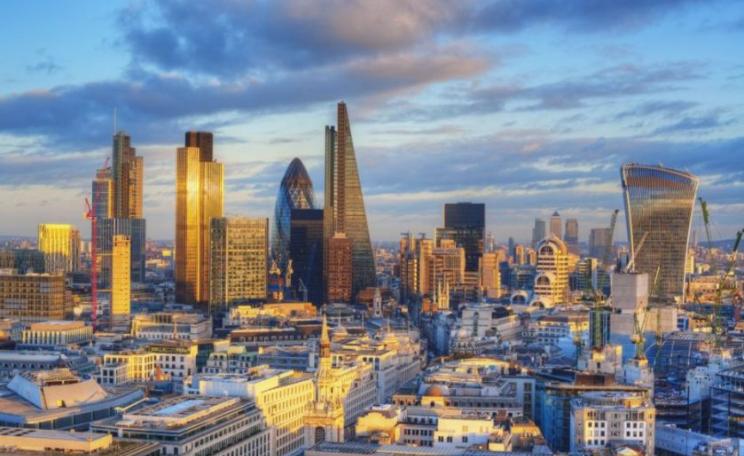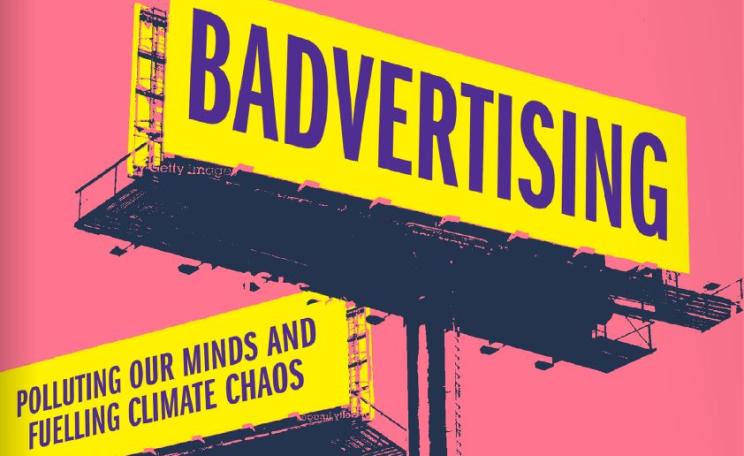At over eight million deaths per year, the latest estimate of the number of people who are killed by air pollution from the burning of fossil fuels, is on a par with the number killed by smoking.
At the 2021 Australian Open tennis championships the prominent courtside sponsors included a fossil fuel company, an airline and a car maker. Sponsorship of sport by major, high-carbon polluters has replaced once common and now disgraced deals with tobacco companies.
Sport used to rely heavily on tobacco sponsorship until the importance of public health overcame vested interests and largely ended the practice. In 1990 more than 20 different televised sports were sponsored by cigarette brands in the United States alone, and a single tobacco company, RJ Reynolds, admitted in 1994 to sponsoring 2,736 separate sporting events in a year.
As a child Andrew used to sit watching county cricket matches in England sponsored by the cigarette company Benson & Hedges. At the time, smoking’s health impacts were well known - just as today the climate science is we'll established - but tobacco sponsorship was still widespread, promoting tobacco products and smoking to everyone, including children, sat watching cricket games.
Planet
Now the world faces a climate emergency and sport is floating on a sea of high carbon sponsorship deals with major polluters. How long will it be before it catches up with the lessons of the eventual ban on tobacco deals? In the 1970s, when advertising was allowed, around half the UK population smoked. Now, with it gone, that number is less than one in five.
Sport is in the frontline of the climate emergency, but finds itself promoting a different kind of combustion, the ‘smoking’ of fossil fuels.
At over eight million deaths per year, the latest estimate of the number of people who are killed by air pollution from the burning of fossil fuels, is on a par with the number killed by smoking.
Worse, not only is it established that fossil fuel companies knew for decades of the link from their products to climatic upheaval whilst lobbying against climate action, now it has emerged that they also knew at least 50 years ago of their chronic health risks, but publicly sowed uncertainty about what they knew.
At over eight million deaths per year, the latest estimate of the number of people who are killed by air pollution from the burning of fossil fuels, is on a par with the number killed by smoking.
Sponsorship agreements that promote fossil fuel intensive products and activities make the health and climate crises worse by normalising high-carbon, polluting lifestyles, and reducing the pressure for action on climate and public health. Having replaced once common tobacco companies as big sports sponsors, deals with major polluters should be ended for the same reason tobacco sponsorship stopped, for the health of people, sports and the planet.
Healthier
In our new research - Sweat not oil: why sports should drop advertising and sponsorship from high-carbon polluters –for the Badvertising campaign, which aims to stop adverts fuelling the climate emergency, we found over 250 prominent deals across multiple sports. The issues this raises for sport are several.
First of all, from the melting of winter sports, to the flooding of football grounds and the cancellation of flagship sporting events due to heat waves and air pollution, global heating and the emissions that cause it are a huge problem.
Secondly, sport itself is contributing to the problem directly through all the emissions linked to it.
Thirdly, direct association with promoting high carbon products and lifestyles not only contradicts the pledges of climate action that many clubs and sports bodies are beginning to endorse, but it poses an increasing reputation risk to sport, which is meant to represent a better, healthier way of life. How large is the problem?
The global sports industry was worth an estimated $471 billion in 2018. Corporate sponsorship in sport is a multi-million dollar business with an estimated $46.1 billion spent in 2019. Some aspects of it go back a long way. In the early days of pre-Olympic, modern athletics, professionalism was common and many races were sponsored by local public houses to attract drinkers.
Extraction
But, after wrapping itself in an elite, ‘amateur’ flag, it was only in 1984 that the Los Angeles Olympic Games became the first Olympics to sign a corporate sponsorship deal.
Since then, the sector has gone through significant changes from the time when only a handful of brands were able to use sports for self-promotion. Now sports sponsorship, with its celebrity athletes, huge audiences and associations with healthy lifestyles, is arguably one of the most important weapons in the advertising armoury.
Among the biggest sponsorship deals, we find a vast range of companies from very different sectors from telecoms, banking and insurance, to soft drinks as well as sportswear. Also heavily present in the field are a number of major polluters, companies with high carbon credentials, in particular the automotive and aviation industries.
In our report, we found more than 250 sponsorship deals involving these high carbon industries. In first position are car manufacturers with 199 sponsorship deals. Airlines comes second place with 63 sports sponsorships.
Other high carbon companies listed are fossil fuel companies, such as the Russian giant Gazprom and British-owned multinational chemical companies Ineos, BP and other companies invested in fossil fuel extraction and product derivatives.
Sponsorship
Car maker Toyota and the airline, Emirates, are the two largest sponsors according to our survey, with deals secured in most sports categories. Other high-carbon companies listed include some airports, a multinational travel agency and a cruise ship company.
The car industry is a significant player with an approximate $1.285 billion spent on general sports, and an estimated 64 percent of car companies’ sponsorship budget dedicated to sports compared to spending on other sectors. Football clubs in particular are often targeted by car companies via ownership or sponsorship deals.
When it comes to airlines’ sports sponsorship, Middle East airlines especially have positioned themselves as a leader in the global market. Among them, the UAE-based airline Emirates comes top of the list, having signed countless partnerships with football, tennis, rugby, sailing, horse racing and golf clubs around the world.
These sponsors are all from sectors that rank among the highest in terms of carbon emissions and have business models that are in direct contradiction with the goals outlined in the Paris Climate Agreement, which aim to drastically reduce carbon emissions over the next decade.
At the same time that some oil and gas companies have been promoting themselves as leaders in the green energy transition, in reality a mere one percent of the sector’s investments go into renewable energy.
Pollution
Car companies on the other hand have shifted their production towards ever-larger gas-guzzling vehicles - SUV sales have doubled over the last 10 years - which shifts carbon emissions in the opposite direction to the much needed reduction in transport emissions. Before the pandemic hit the aviation sector hard, airlines had also recorded steady levels of passenger and emissions growth in recent years.
Sports sponsorship deals cover a range of popular outdoor and indoor sports, focussing on international sports federations, associations, clubs, teams, leagues and other sporting events. The list features sporting fields such as football and basketball, tennis, cycling, rugby, cricket, the Olympics and athletics.
All are targets for sponsors due to their far-reaching audiences. Other less mainstream sports like motorsport or sailing, which attract brands that want to connect with their more prestigious, materially aspirational images, also feature.
Sport has been a game changer in raising awareness and rapidly shifting opinions and policy on vital issues ranging from child poverty to racism, now it could be set to do the same for climate change. The mass following of sport acts as a weather vane for the rest of society.
Athletes are key role models, and know at first hand the health consequences of air pollution and extreme weather events. That means that when sport blows the whistle on major polluters, their sponsorship deals should leave the pitch just like adverts from tobacco companies once did.
Athletes
Pressure for change is already growing within sport too. Etienne Stott was an Olympic Champion at the London 2012 Olympics and is now speaking out for action.
He said: “It’s wrong for these companies, who are fully aware of the deadly impact of their products, to use the power and beauty of sport to normalise and hide their behaviour. Sport has a unique power to connect and inspire people.
"I would like to see it use its voice to promote the idea of care and stewardship of our planetary resources, not insane exploitation and destruction.”
Melissa Wilson is a member of the GB Rowing Team and qualifier for the Tokyo Olympics.
She said: “As athletes, we focus a lot on keeping sport 'clean' through prioritising anti-doping. Yet continuing to pollute in the face of the climate emergency is the Earth-equivalent of doping, or scoring own goals. By keeping polluting sponsors on board, sports detract from their opportunity to play a productive part in the race to zero carbon. It’s time for sports and athletes to change that.”
Policy
Sport needs to stop lighting-up with promotions from major polluters. By doing so it will help tackle a public health emergency for the same reason that tobacco sponsorship was ended. And, this time there’s a bigger reason too, preserving the very climate that sport, and all other human activities depend on.
We recommend a number of steps that sport can take, including:
- Positively screen corporate sponsors and turn down any from major polluters
- Sign up to the UN Sport for Climate Action Framework and publish a ten-year plan to get to zero carbon by 2030.
- After 2030, any global sports events or tours that are not zero carbon should be cancelled or postponed until they are. Sports federations that are not zero carbon should be excluded from the Olympics.
- Global sport must actively cut its reliance on air travel.
- Zero carbon plans must be a condition of public support.
- Increase support to low-carbon, local grassroots sport.
These policy shifts, alongside practical carbon reduction measures, must form the building blocks of any climate plan that sports organisations sign onto. Otherwise, as the popular saying goes, there will be no sport on a dead planet. It’s time for sport to show the red card to major polluters.
These Authors
Emilie Tricarico is a researcher and writer into social and ecological transitions and is cofounder of SEEKonomics. She tweets at @EmilieTricarico. Andrew Simms is co-director of the New Weather Institute, coordinator of the Rapid Transition Alliance, author of several books on new and green economics and co-author of the original Green New Deal (sports-wise, he’s also a keen member of his local running club). He is on twitter at @AndrewSimms_uk.
The report Sweat not oil: why sports should drop advertising and sponsorship from high-carbon polluters is published by the New Weather Institute, climate charity Possible and the Rapid Transition Alliance, for the Badvertising campaign which aims to stop adverts fuelling the climate emergency, with support from the KR Foundation.







